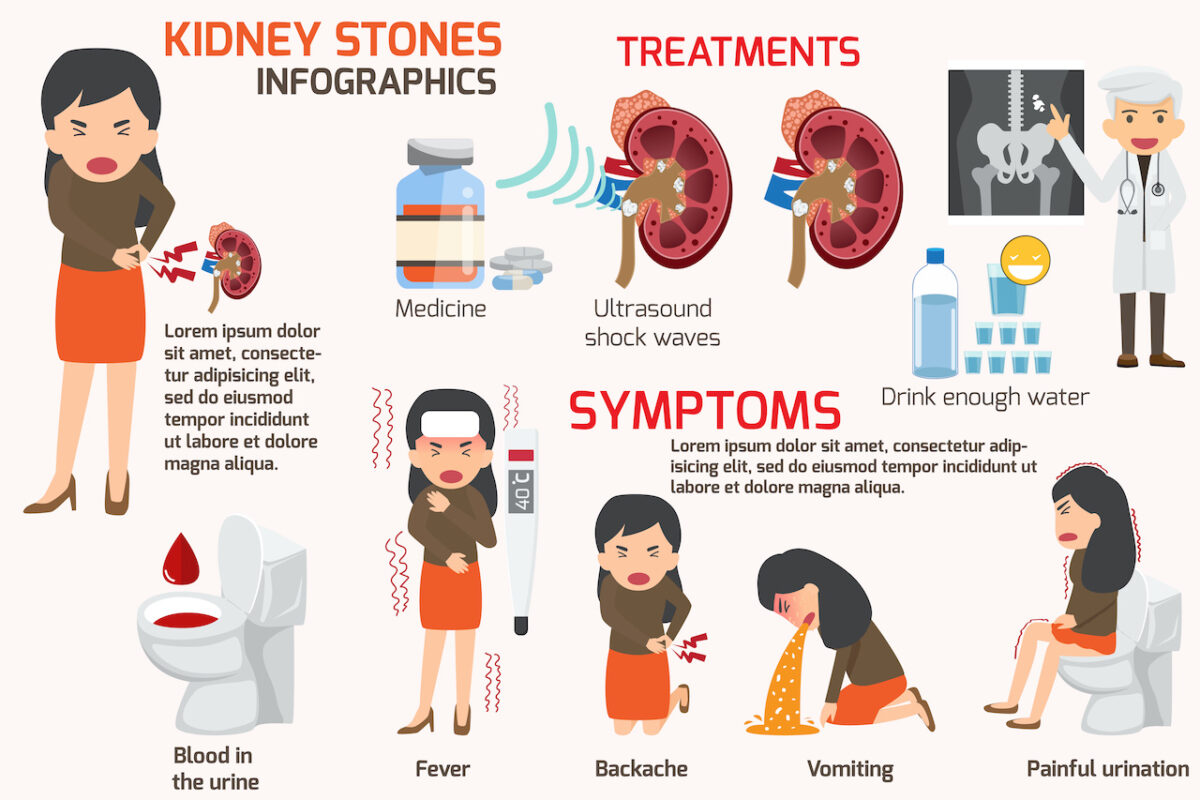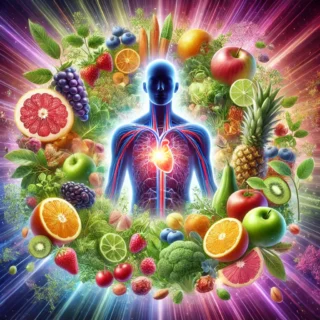What is a Kidney Stone and How Did I Get One?

Kidney stones
The kidneys are the body’s filtering system, removing waste from the blood via urine. They control levels of many substances in the blood, as well as helping to control blood pressure. Another function of the kidneys is to control pH levels in the body.
A kidney stone is a hard object made from substances in the urine. A stone forms when there is too much waste in too little liquid and continues to grow until it is passed through the urine and out of the body. After a stone forms, it either remains in the kidney or starts traveling down the ureters. Most stones are made of calcium.

How do I know if I got kidney stones?
The symptoms of a kidney stone occur as it travels through the urinary tract causing inflammation and irritation. The larger the stone, the more intense the symptoms.
Common Symptoms
– Flank pain and renal colic (spasms of intense pain)
– Vague pain and stomach ache that does not go away with different positions
– Blood in urine (hematuria)
– Urine that smells bad or is cloudy
– Pain while urinating (dysuria) and increased frequency
– Nausea and vomiting
– Fever and chills
Risk Factors
– Diet: dehydration, diets high in protein and sodium, sedentary lifestyle
– Geographic location: high humidity, warm temperatures
– Genetics: cystinuria, 50% of calcium-based stones have a heritable component
– Medications: diuretics, antacids, chemotherapy, HIV medications – Certain medical conditions: Crohn’s disease, hyperparathyroidism, polycystic kidney disease – Pregnancy
How do I prevent it?
1. Increase water intake!
2. Limit sodium intake
3. Spread animal protein intake throughout the day
Summary:
- Kidney Stone Formation: Kidney stones are hard objects formed from substances in urine due to an imbalance of waste and liquid levels in the kidneys.
- Symptoms of Kidney Stones: Symptoms include flank pain, renal colic, stomach ache, blood in urine, cloudy or foul-smelling urine, pain during urination, nausea, vomiting, fever, and chills. Severity increases with stone size.
- Common Risk Factors: Factors contributing to kidney stone formation include dehydration, high-protein and high-sodium diets, sedentary lifestyle, geographic location (high humidity, warm temperatures), genetics, certain medications, and specific medical conditions.
- Preventive Measures for Kidney Stones: To prevent kidney stones, it is recommended to increase water intake, limit sodium consumption, and distribute animal protein intake evenly throughout the day.
- Functions of Kidneys: Kidneys not only filter waste from the blood but also regulate various substances, control blood pressure, and maintain pH levels in the body.

This article reviewed by Dr. Jim Liu, MD and Ms. Deb Dooley, APRN.
There’s nothing more important than our good health – that’s our principal capital asset.
#medical #telehealth #umedoc






